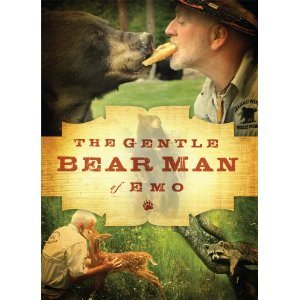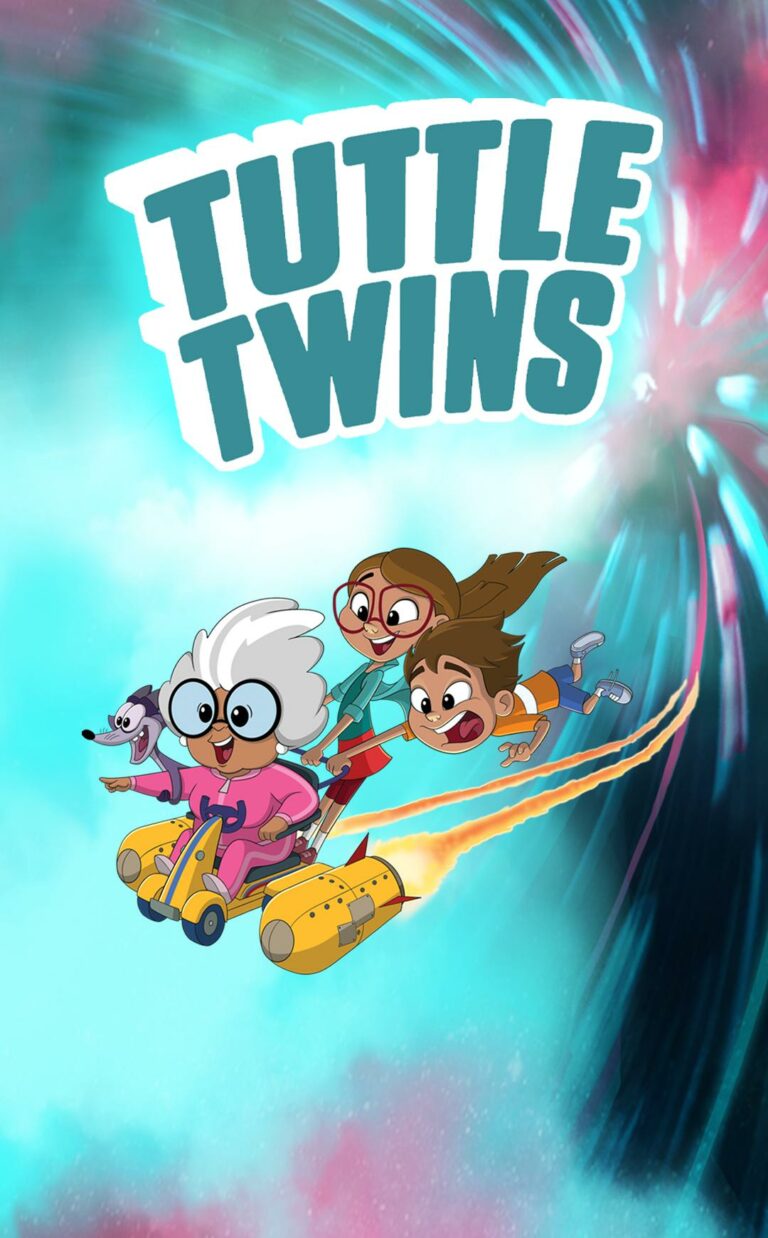““A PBS KIDS Show from a Conservative Perspective.””

| None | Light | Moderate | Heavy | |
|---|---|---|---|---|
| Language | ||||
| Violence | ||||
| Sex | ||||
| Nudity |
What You Need To Know:
The first three episodes of TUTTLE TWINS: Season Three are an animated triumph. The writing is witty and informative. There’s also great visual humor. The first three episodes of Season Three have a strong moral worldview teaching conservative values. They promote the importance of good father figures, critical thinking skills and financial literacy. However, the TUTTLE TWINS episodes feature light cartoon violence, including some fighting and slapstick comedy. Also, the writing tends to be preachy. MOVIEGUIDE® advises caution for younger children because of the cartoon violence.
Content:
(BB, PP, CapCap, C, ACAC, V, M): Dominant Worldview and Other Worldview Content/Elements: Strong moral worldview promotes traditional American, conservative, free market values, hard work, honesty, personal responsibility, and critical thinking skills, plus the Tuttle family helps a troubled people from across space and time, one episode stresses the struggles and beauty of strong father figures, a superheroine finds meaning in taking a construction job, the main cast openly questions the messages of authority figures, and the father of the main cast spends his time redeeming a school bully; Foul Language: No foul language; Violence: Some slapstick violence throughout, a wisecracking robot gets his legs chopped off in every episode, punches and kicks are thrown in the “superhero” episode, the racoon sidekick gets into a fight with deadbeat fathers, a robot self-destructs into an explosion, a bully character trashes a grade school theater stage in a fit of rage, a knockoff of Captain Hook fights with his sword, and an alien egg character fakes his own death offscreen; Sex: No sex, but a brief comment of the main characters questioning why a deadbeat father had children in the first place; Nudity: No nudity, Alcohol Use: No alcohol; Smoking and/or Drug Use and Abuse: No smoking or illicit drugs, the main characters drink “superhero water” to briefly gain super powers, an alien egg woman gives poisoned eggnog to the children characters, and a raccoon character eats radioactive waste from Earth; Miscellaneous Immorality: Two alien egg people plot a conspiracy to overthrow their ruler, the grandmother character crashes into a wax museum of American presidents, and the main cast invades Doctor Ben Carson’s brain without his consent.
More Detail:
Inspired by classic PBS cartoons such as WORDGIRL and CYBERCHASE, TUTTLE TWINS follows Emily Tuttle, her twin brother Ethan, their troublemaking grandmother Gabby, and their chaotic pet raccoon. Emily enjoys science, while Ethan aspires to be a professional filmmaker. In each episode, the Tuttle family learns about the tenets of liberty, personal responsibility, financial literacy, and critical thinking.
In Season 3, the Twins receive an alien fish from space that warns them disaster will come to their town. The Tuttle family must fight to prevail. TUTTLE TWINS is based on the book series of the same name.
In Episode 1 of Season 3, “The College Conundrum,” Emily and Ethan Tuttle question the viability of pursuing a college education. The twins bump into TV personality Mike Rowe, who outlines the strengths and drawbacks of earning a post-high school degree. Later, the Tuttle family visits Superhero University but must discover if a superhero degree is enough to defeat a supervillain.
“The College Conundrum” is an entertaining start to Season 3. The episode expertly explains post- high school education isn’t a one-path solution. The twins explain the “use cases” for trade schools, science and technical colleges, and work apprenticeships. The presentation is understandable without overwhelming younger viewers. The twins discover they don’t need exorbitant student loan debt to make a living. The second half of the episode, where the Twins help a superheroine decide her career path, is full of hilarious dialogue and brilliant superhero puns.
In Episode 2, “Fighting for Fatherhood,” the twins discover Bruce, their school bully with anger issues, lives with his single mother. The Tuttle family contacts brain surgeon Doctor Ben Carson for advice. Carson explains the “epidemic” of absent fathers and how it emotionally degrades their children. Later, Team Tuttle crash-lands on a Peter Pan planet, where the Lost Boys replace the Lost Fathers, who abandoned their responsibilities.
“Fighting for Fatherhood” offers a great message but is weighed down by its lackluster “Peter Pan” satire. The first half of the episode, which explains the systemic causes of absent fathers, highlights the importance of stable households. The show acknowledges being a competent father isn’t easy but is an aspirational vocation. In the end, the father of the Tuttle Twins volunteers to help Bruce through his anger issues.
The biggest downside to episode two is the “Peter Pan” portion, where the Twins battle the Lost Dads and a dollar-store version of Captain Hook. The parody is trite at best, the “Lost Dad” antics are “forced,” and the resolution for the deadbeat fathers comes too quickly. This satire weighs down an otherwise wholesome episode.
Episode 3, “Cracking Conspiracies,” is the boldest episode of the bunch. A school trip to the city park is canceled under “shady circumstances.” The Twins’ classmates spread crackpot theories over the abrupt cancellation. The Tuttle Twins learn critical thinking skills from a JFK museum to get to the truth. Later, the family crashes onto a planet full of sentient egg people. The Twins uncover a conspiracy concerning Humpty Dumpty’s mysterious murder and attempt to “crack” the case.
The third episode picks up when the Tuttles crash land on the planet filled with sentient egg people. The Twins interrogate the murder of Humpty Dumpty, the husband of a high-ranking officer. The Twins examine the planet for evidence. This “murder mystery” segment makes fun of “egg kingdom propaganda” and the controversial figure Alex Jones. The twins find the truth without falling prey to either side’s nonsense. This segment is chock full of “egg-cellent” puns and great visual humor.
In terms of worldview, TUTTLE TWINS has an iron grip on moral and traditional American, conservative values. For example, the twins focus on hard work, honesty and helping their neighbors. Also, although the three episodes don’t explicitly mention God or Jesus, the characters are fervent believers in liberty, critical thinking and the United States Constitution. The twins even redeem a bully character after learning about his fatherless upbringing.
The first three episodes of TUTTLE TWINS: Season Three are an educational triumph. They promote the importance of good father figures, hard work, honesty, critical thinking skills, and financial literacy. The writing is witty and informative. However, the show features light cartoon violence, including some fighting, slapstick comedy and an incident of vandalism. Also, the writing tends to be on the preachy side. MOVIEGUIDE® advises recommends caution for younger children because of the cartoon violence in TUTTLE TWINS: Episodes 3.1 to 3.3.


 - Content:
- Content: 
